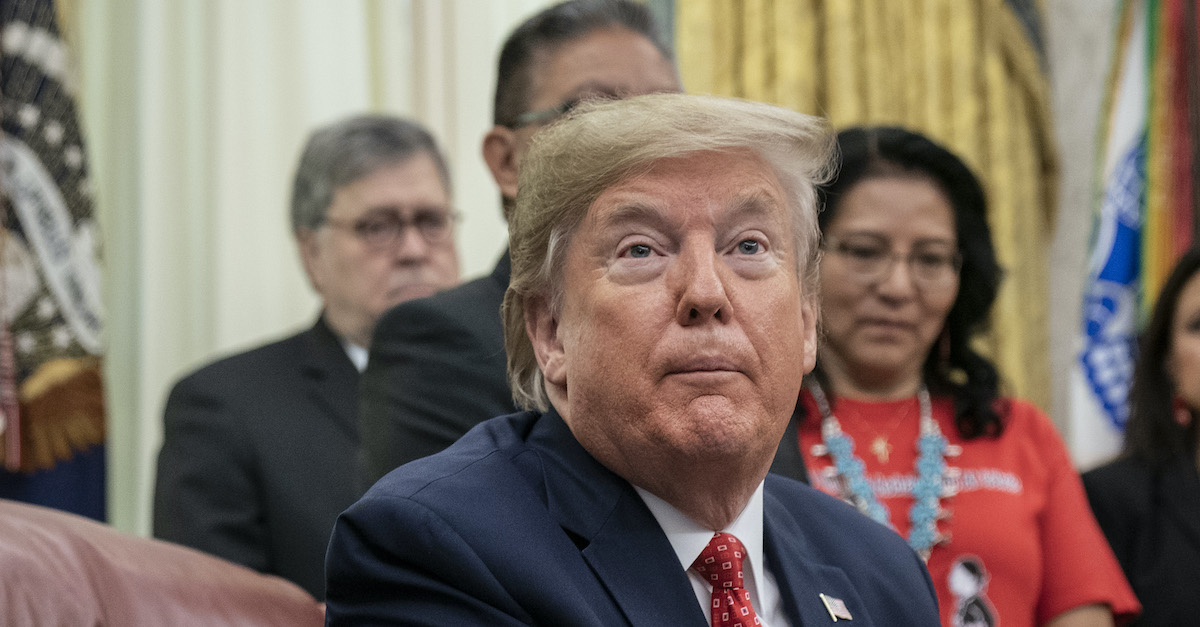
President Donald Trump on Tuesday appeared to violate a federal court order by blocking a popular Twitter account dedicated to parodying the 45th president.
A three-judge panel on the Second Circuit Court of Appeals unanimously ruled in July 2019 that Trump violates the First Amendment of the U.S. Constitution when he blocks users who follow him on Twitter.
The account, @realDonaldTrFan, has over 313,000 followers. Though its user photo is the same as the one used by the president’s official Twitter account, the farcical Trump account is clearly marked as a parody.
“President Trump blocked the Parody Trump twitter account @realDonaldTrFan, even though the 2nd US Circuit Court of Appeals ruled the 1st Amendment forbids Trump from using Twitter’s Block Feature. Is this PROOF that Hydroxychloroquine causes mental confusion in Low-IQ Presidents?” the parody account Tweeted along with a photo showing it had been blocked by the president.
In the days leading up to being blocked, the parody account had lampooned Trump for his performances during press conferences, for promulgating the ‘Obamagate’ conspiracy theory, and (most recently) for claiming he’s been taking hydroxychloroquine to prevent himself from contracting the disease caused by the novel coronavirus.
As previously reported by Law&Crime, the Second Circuit opinion which held Trump was constitutionally prohibited from blocking Twitter followers resulted from a lawsuit filed by the Knight First Amendment Institute at Columbia University. The lawsuit argued that the manner in which President Trump and his aides used the official @realDonaldTrump Twitter account made it a “key channel for official communication” from the government and that meant access to it was protected by the First Amendment.
The Court agreed, rejected the government’s contention that Trump’s use of the social media platform was merely personal.
“This debate, as uncomfortable and as unpleasant as it frequently may be, is nonetheless a good thing,” wrote U.S. Circuit Judge Barrington Parker, an appointee of President Bill Clinton.
“In resolving this appeal, we remind the litigants and the public that if the First Amendment means anything, it means that the best response to disfavored speech on matters of public concern is more speech, not less.”
[image via Drew Angerer/Getty Images]
Have a tip we should know? [email protected]